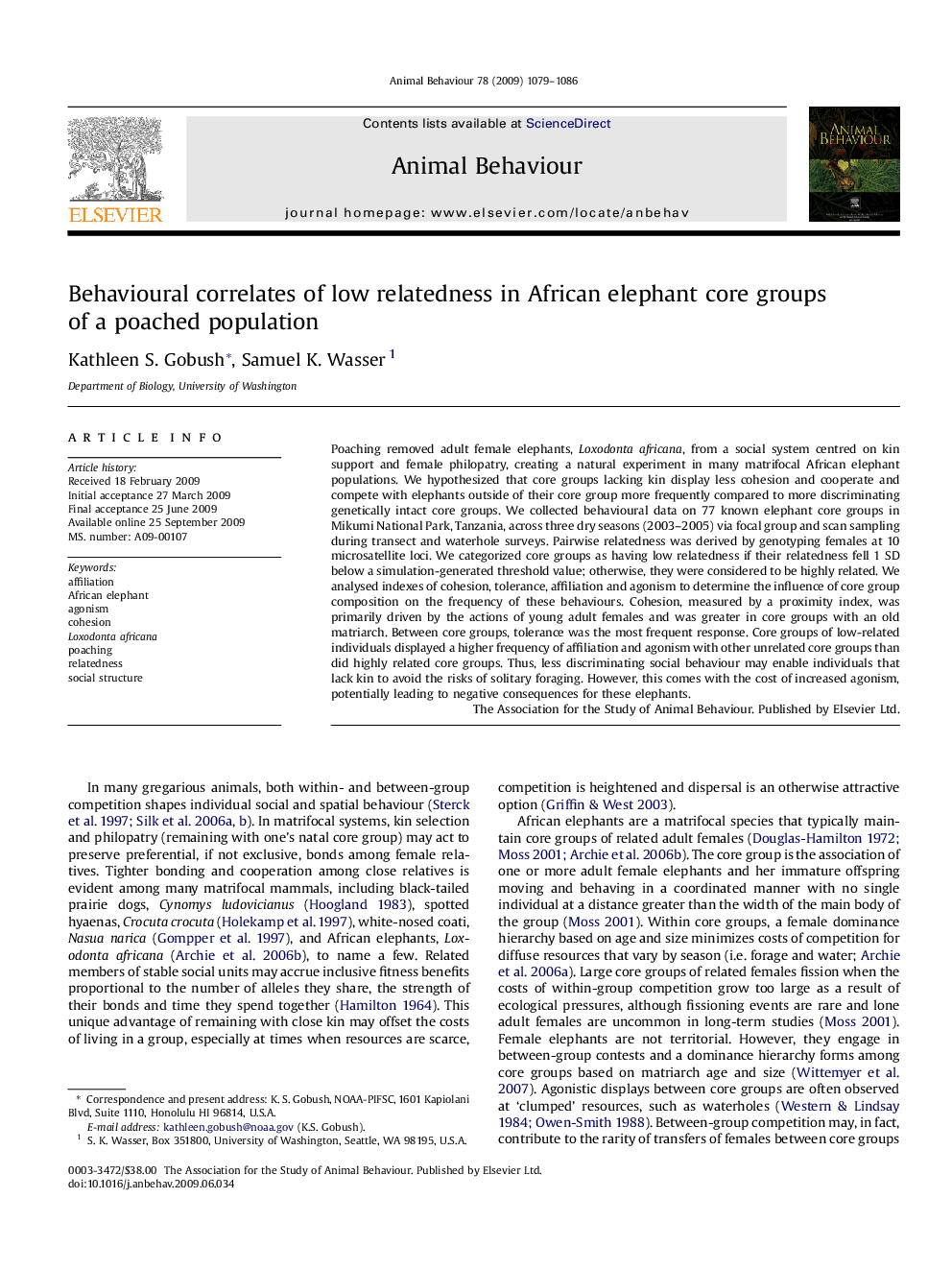| Article ID | Journal | Published Year | Pages | File Type |
|---|---|---|---|---|
| 2417787 | Animal Behaviour | 2009 | 8 Pages |
Abstract
Poaching removed adult female elephants, Loxodonta africana, from a social system centred on kin support and female philopatry, creating a natural experiment in many matrifocal African elephant populations. We hypothesized that core groups lacking kin display less cohesion and cooperate and compete with elephants outside of their core group more frequently compared to more discriminating genetically intact core groups. We collected behavioural data on 77 known elephant core groups in Mikumi National Park, Tanzania, across three dry seasons (2003-2005) via focal group and scan sampling during transect and waterhole surveys. Pairwise relatedness was derived by genotyping females at 10 microsatellite loci. We categorized core groups as having low relatedness if their relatedness fell 1 SD below a simulation-generated threshold value; otherwise, they were considered to be highly related. We analysed indexes of cohesion, tolerance, affiliation and agonism to determine the influence of core group composition on the frequency of these behaviours. Cohesion, measured by a proximity index, was primarily driven by the actions of young adult females and was greater in core groups with an old matriarch. Between core groups, tolerance was the most frequent response. Core groups of low-related individuals displayed a higher frequency of affiliation and agonism with other unrelated core groups than did highly related core groups. Thus, less discriminating social behaviour may enable individuals that lack kin to avoid the risks of solitary foraging. However, this comes with the cost of increased agonism, potentially leading to negative consequences for these elephants.
Keywords
Related Topics
Life Sciences
Agricultural and Biological Sciences
Animal Science and Zoology
Authors
Kathleen S. Gobush, Samuel K. Wasser,
